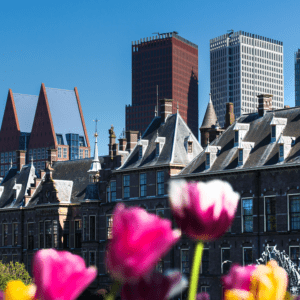 Israel’s hotel pipeline remains strong and, buoyed by new laws facilitating hotel developments, investor interest is expected to grow further in the country, according to the latest HVS report on the hotel markets in Israel.
Israel’s hotel pipeline remains strong and, buoyed by new laws facilitating hotel developments, investor interest is expected to grow further in the country, according to the latest HVS report on the hotel markets in Israel.
While the impact of continuing terrorist activity has resulted in fewer visitors travelling to Israel, those cities with strong corporate-driven business, such as Tel Aviv, have proven to be more resilient than mainly leisure-driven markets such as Jerusalem and the Dead Sea area.
‘Over the past year, the country saw a 25% drop in the number of Russian visitors, while Italian visitation fell by 19%. As a result, hotel occupancies and average rates have been under pressure,’ said report co-author Jill Barthel, associate, HVS London.
Despite this, the number of visitors from Germany, the UK and France has improved since the 2014 summer conflict, with the German and UK markets proving particularly resilient, recording remarkable growth of around 20% and 18% in 2015, respectively.
‘Not only did visitor numbers from those markets rise, but also the investment appetite of both domestic and international developers seems unsatiated,’ added Barthel.
Israel currently has a healthy development pipeline of some 7,600 hotel rooms. Around 2,000 of these are affiliated with international hotel brands, accounting for 27% of the total pipeline. The strongest investment interest is being shown in Jerusalem and Tel Aviv, as well as the northern coastal areas. A new regulation introduced by the Knesset earlier this year, aiming to speed up the completion of hotel developments and enable up to 20% of each hotel to be classified for residential purposes, is expected to stimulate demand further still.
Nevertheless, the number of bednights accounted for by international visitors to Israel fell in 2015 by 10.5%, indicating that many people reduced their stays. Airbnb has also claimed around 5% of hotel bednights, establishing itself as a competitor to regular hotels. The Israel Hotel Association is actively trying to limit the impact made by Airbnb by fighting for the implementation of tax laws and stricter regulation on this market.
‘The overall outlook for Israel isn’t as negative as might be perceived though, considering the prevailing geo-political environment. Overall, investment appetite in the country has not weakened over the past year so the outlook for Israel’s hotel sector gives reason for positivity and renewed hope,’ concluded Russell Kett, chairman, HVS London.
To download a full copy of the report Trends and Opportunities: Israel Hotel Market Overview 2016 by Russell Kett and Jill Barthel click here.



















